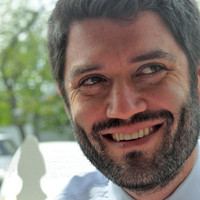Rukmini Callimachi covers ISIS for The New York Times. Part 1 of this episode is available here.
“Ever since I started in journalism, I feel like I'm perpetually winded. Like I'm just running as hard as I can to stay ahead of this train that's crashing. The caboose is falling off the back and I'm trying to run faster than the train to get to this very limited pool of amazing jobs. Once I got overseas I would say a prayer every night for the amazing life I was finally able to lead.”
Thanks to TinyLetter and Lynda for sponsoring this week's episode.



















